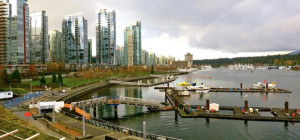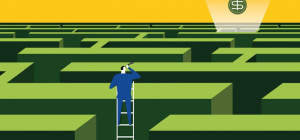The power to effectively increase your employees’ productivity and loyalty lies within you.
Whether you’re a human resource manager, line manager or simply working in the trenches on the front line, did you ever notice any co-workers not being satisfied at work?
There’s a strong correlation between employee satisfaction and the rewards they receive for work done well. Research in this area suggests that over 50% of employees report to rarely ever receive a “thank you” for high performance at work. Like in sport or any attempt at reaching a goal, positive encouragement and reinforcement is definitely a good thing. Like teaching a child to ride a bicycle for the first time, encouraging them to stay going is so important for their self esteem and any future attempts to cycle further.

In the work place, this is also true. Loyalty levels of employees, higher degrees of morale among employees and lower levels of work absenteeism are the result. From a company’s point of view, this is great for all stakeholders. Less turnover of staff means there’s less costs involved in training, interviewing etc and great places to work attract high quality talent as well as printing a positive stamp in the market place among competitors. If you are a human resource manager you will know a lot of this. But if you are a line manager, department head or team leader then you must realise, reward and appreciate the work efforts of your sub-ordinates.
The 4 types of rewards
Attempting to address this concern, you can begin with these four core types of rewards: financial rewards, recognition, appreciation and benefits. Companies can use two key indicators in helping to build effective reward systems. These are a) behaviour and b) performance.
From a measurability perspective, performance is easier to measure as results are clear and defined. The challenge is that not all behaviour is measurable and visible.
Financial rewards
Financial rewards may take the form of:
- employee’s salary,
- bonus and
- commission earned.
The challenge here, is that companies may have different levels of experience among employees in the same role. This can lead to higher expectations for bonuses and higher salary to satisfy their own value on their work experience, qualifications or company seniority.
Recognition
Recognition of great employees is important for the employees, peers, and the overall company too. Recognition could be shown in the following ways:
- Perpetual or outstanding awards like personalised medals or trophies
- A formal recognition letter and
- An informal recognition letter
Appreciation
Appreciation is a more subjective reward type and so it’s harder to define what good work or great work is when it comes to showing your appreciation to employees. The below are some ways how you might show appreciation (an intangible reward):
- A formal appreciation letter, thanking the employee and saying how valuable their work was in the project/design etc
- An informal appreciation letter from the line manager saying “thank you John, well done on such a great job. Keep up this great work”, and
- A little gift (flower, bottle of wine, voucher) or simply a round of applause in the office might be sufficient to make that employee happy and feel appreciated.
Benefits
Benefits are the “perks of the job” and can take the form of the following:
- Health insurance
- Annual leave (maybe an extra day for 3 year service etc)
- A company vehicle (this might be a big benefit for some people)
Benefits are more easily defined than just financial rewards like the above as a car is still a car or an extra days leave means the same thing for everyone. In an effort to retain employees, there are usually multiple benefits found in companies with lower levels of staff turnover.
Finally, sometimes you do need to treat everyone differently
Accepting the fact that employees are all different people and may have different motivations, likes and dislikes is the challenge for you as a manager or team leader. This is the most important point to note when building a reward system. Outside of the office, the work social scene may be a great insight into your employees to see how competitive they are, how they perform in new teams etc or maybe just to see how fun they can be when not in the office!







